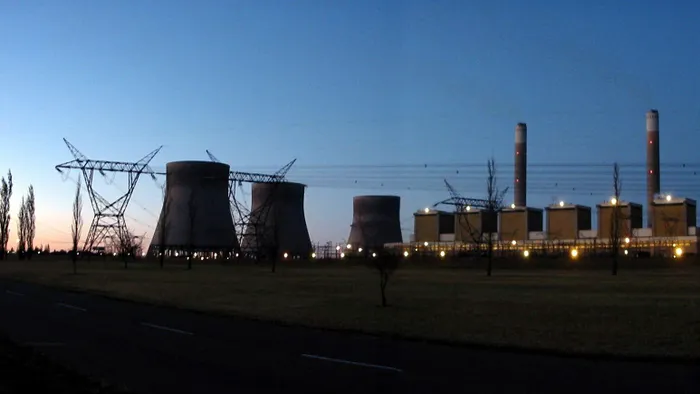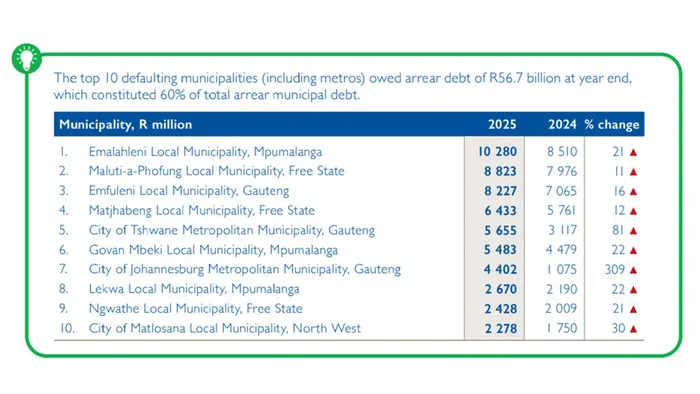
Municipalities could owe Eskom R300 billion by 2030. Pictured: Kendal Power Station.
Image: Eskom
Eskom’s municipal debt crisis is not just a financial nuisance – it is threatening the utility’s very survival.
Debt from municipalities is set to climb from just under R100 billion now to more than R300 billion within the next five years.
Eskom itself has previously warned that this trajectory could cripple its turnaround plans.
Municipal debt has increased by an average of 26% per year from 2021 to 2025, outpacing revenue growth, which averaged around 14% per year, Eskom’s results show.
Defaulting by municipalities remains a systemic challenge for the entire electricity industry, Eskom said.
Eskom CFO Calib Cassim yesterday said that “this is not sustainable. No organisation is going to survive if you are not paying for the commodity or service”.
The number of municipalities with an arrear debt balance of more than R100 million has increased to 75 as of the end of March, when compared to the 69 seen a year earlier.
"Our financial sustainability is further threatened by the inability to recover close to R95 billion in arrear municipal and metro debt," said Eskom in its results.
The bulk of the arrears comes from municipalities in the Free State (27%), Mpumalanga (27%) and Gauteng at 22%.
Municipalities account for 42% of its sales.

The top ten defaulting municipalities that owe Eskom billions.
Image: Eskom
But what is now rattling Eskom is that metros, including the City of Johannesburg and City of Tshwane, are also falling badly behind.
A High Court ordered Johannesburg to settle its arrears, but the metro appealed and then government intervened to stop the city going dark.
Eskom issued a disconnection notice in November 2024 but withdrew it following intervention from the Minister of Electricity and Energy, Kgosientsho Ramokgopa.
The outcome was a settlement requiring Johannesburg to pay R3.2 billion over four years.
Tshwane has, so far, honoured a five-year repayment deal agreed late last year.
This plan will default if the city doesn’t keep paying its current account on time.
There have been isolated wins: Ekurhuleni paid off its arrears in July.
Ramokgopa has previously warned that the debt was growing at a pace Eskom could not endure. “There is only so much Eskom can absorb,” he said.
National Treasury’s municipal debt relief programme, launched in 2023, was meant to break the cycle.
It allows Eskom to write off historic arrears if municipalities stick to strict repayment conditions.
But Eskom revealed that 63 out of the 71 municipalities were, as of March, still failing to settle their current accounts as they fall due.
Some municipalities, like Ekurhuleni and Mogale City, have complied and secured partial debt write-offs.
Others, including Emfuleni, continue to fall short.
The municipality still owes Eskom over R5.3 billion, despite Treasury conditionally writing off nearly R1 billion in 2023 to support financial reforms.
“Resolving the historic arrear debt challenge, collecting the revenue owed to us and preventing future growth in overdue amounts are critical to improving operating cash flows and, ultimately, our financial sustainability,” Eskom said in its results.
IOL Business